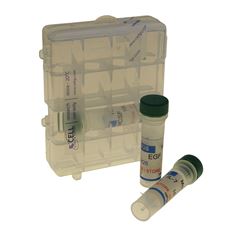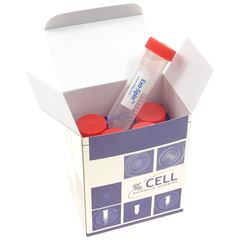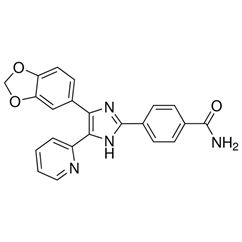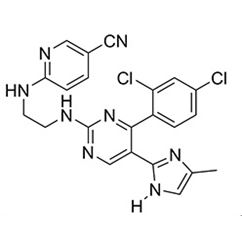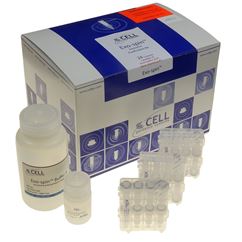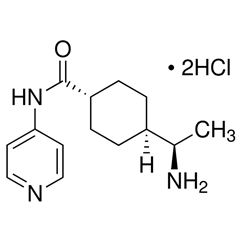Recombinant Human FGF-7 / KGF
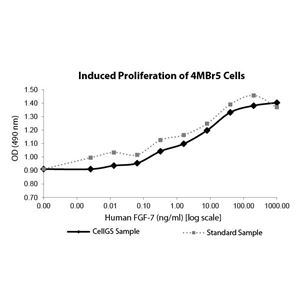
Induced proliferation of 4MBr-5 cells assay for Human FGF-7. Cell proliferation was measured to calculate the ED50, which is as expected less than 60 ng/ml.
Achieve Purchasing Synergy
Request a quote at [email protected] for 2 or more vials of any Growth Factor to receive a discount. Discounts range from 5 to 20% according to the size of your order.
PODS® Growth Factors
This growth factor is also available as PODS® for sustained release, see here.Description
Fibroblast Growth Factor 7 (FGF-7), also known as Keratinocyte Growth Factor (KGF), is a potent mitogen that regulates epithelial cell migration and differentiation. FGF-7 is produced by mesenchymal cells and binds in high affinity to a splice variant of FGF receptor 2 (FGFR2-IIIb). The mitogenic activity of FGF-7 acts predominantly on keratinocytes, but not on fibroblast or endothelial cells. FGF-7 expression is upregulated after acute and chronic injury, suggesting that FGF-7 functions during the healing of injured epithelial cells. FGF-7 also induces the formation of the apical ectoderm ridge during limb development.Activity Assay
Human FGF-7 is fully biologically active when compared to standard. The activity is determined by the dose-dependent proliferation of 4MBr-5 cells and it is typically less than 60 ng/ml. This corresponds to an expected specific activity of 1.7 x 104 units/mg.AA Sequence
MCNDMTPEQM ATNVNCSSPE RHTRSYDYME GGDIRVRRLF CRTQWYLRID KRGKVKGTQE MKNNYNIMEI RTVAVGIVAI KGVESEFYLA MNKEGKLYAK KECNEDCNFK ELILENHYNT YASAKWTHNG GEMFVALNQK GIPVRGKKTK KEQKTAHFLP MAITAlternative Names
Fibroblast Growth Factor 7, FGF7, FGF 7, KGF, Keratinocyte Growth Factor| Product Details | |
|---|---|
| Length | 164 aa |
| Molecular Weight | 19 kDa |
| Structure | Monomer |
| Source | E. coli |
| Accession Number | P20781 |
| Purity | ≥90% determined by reducing and non-reducing SDS-PAGE |
| Endotoxin Level | ≤1.00 EU/μg as measured by kinetic LAL |
| Formulation | Lyophilized from a sterile (0.2 micron) filtered aqueous solution containing 10 mM sodium phosphate, 100 mM soldium chloride, pH 7.5 |
| Reconstitution | Centrifuge vial before opening. When reconstituting the product, gently pipet and wash down the sides of the vial to ensure full recovery of the protein into solution. It is recommended to reconstitute the lyophilized product with sterile water at 0.1 mg/ml, which can be further diluted into other aqueous solutions. If a precipitate is observed, centrifuge the solution thoroughly and use only the soluble fraction (removing it from the precipitate). A 10% overfill has been added to compensate for any loss of protein in the precipitate. |
| Stability and Storage |
12 months from date of receipt when stored at -20°C to -80°C as supplied. 1 month when stored at 4°C after reconstituting as directed. 3 months when stored at -20°C to -80°C after reconstituting as directed. |

